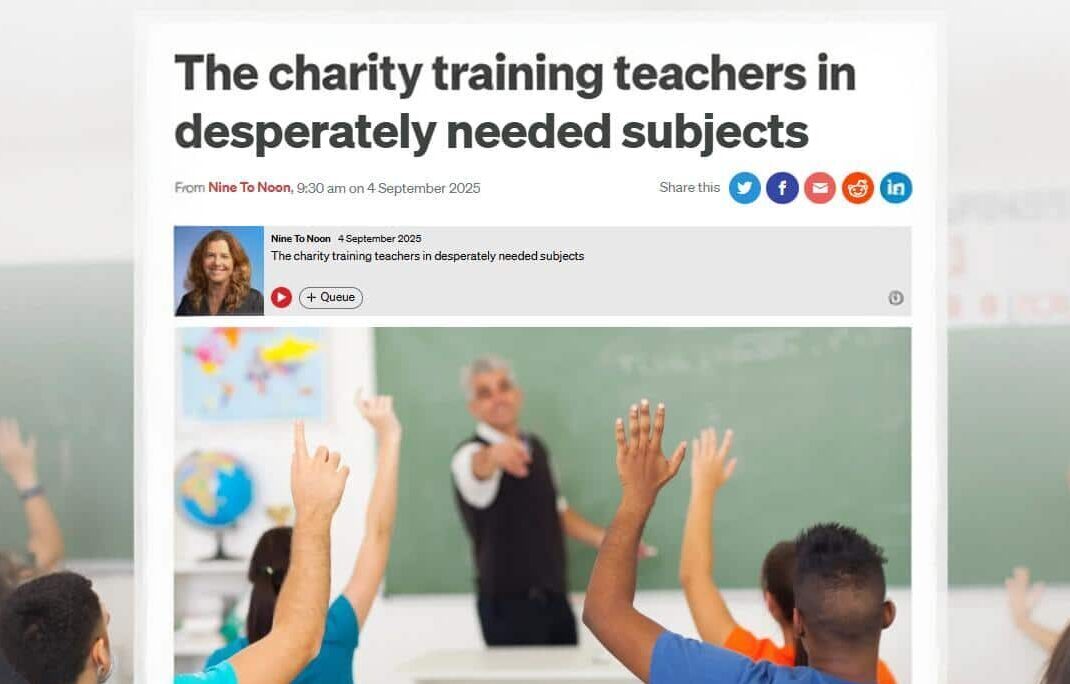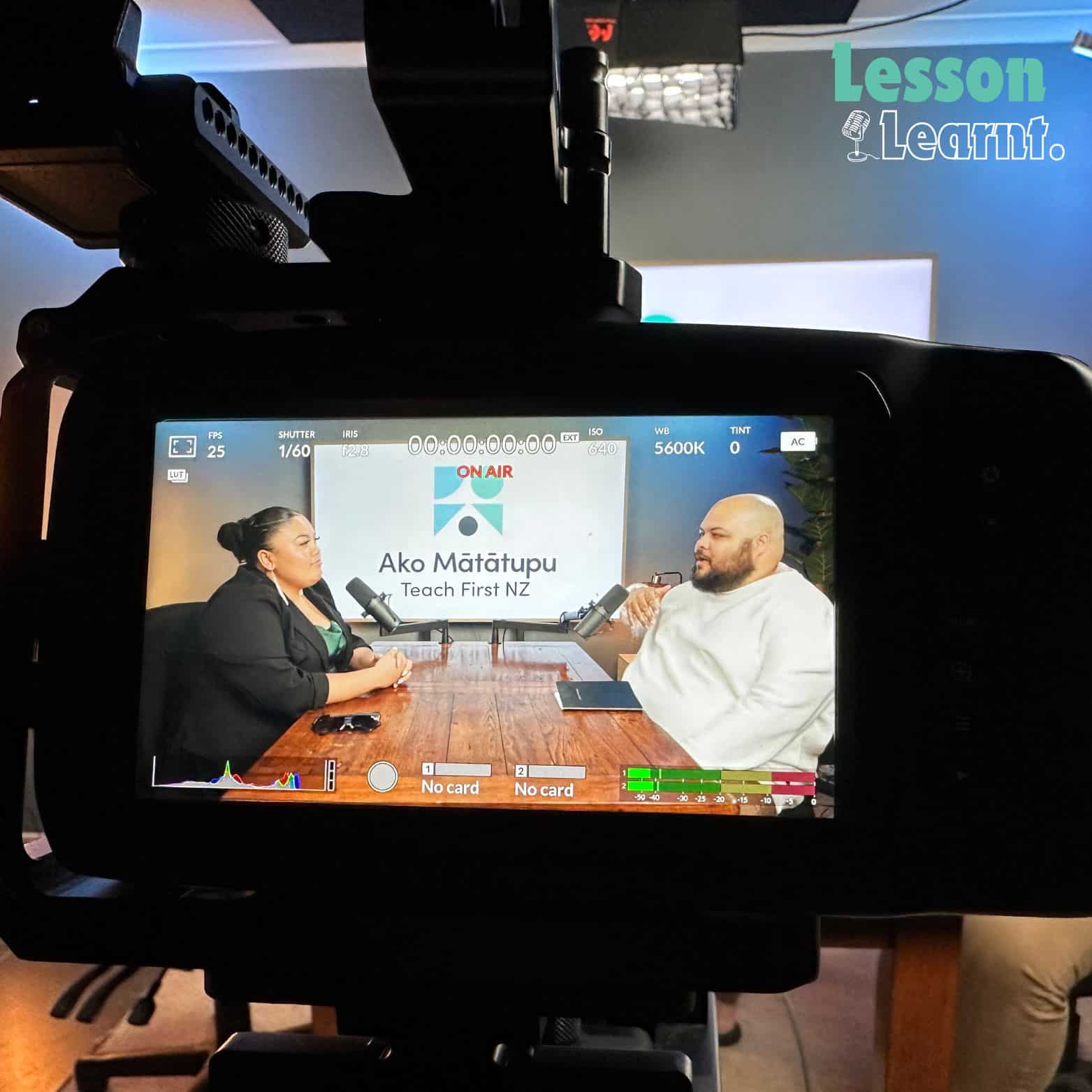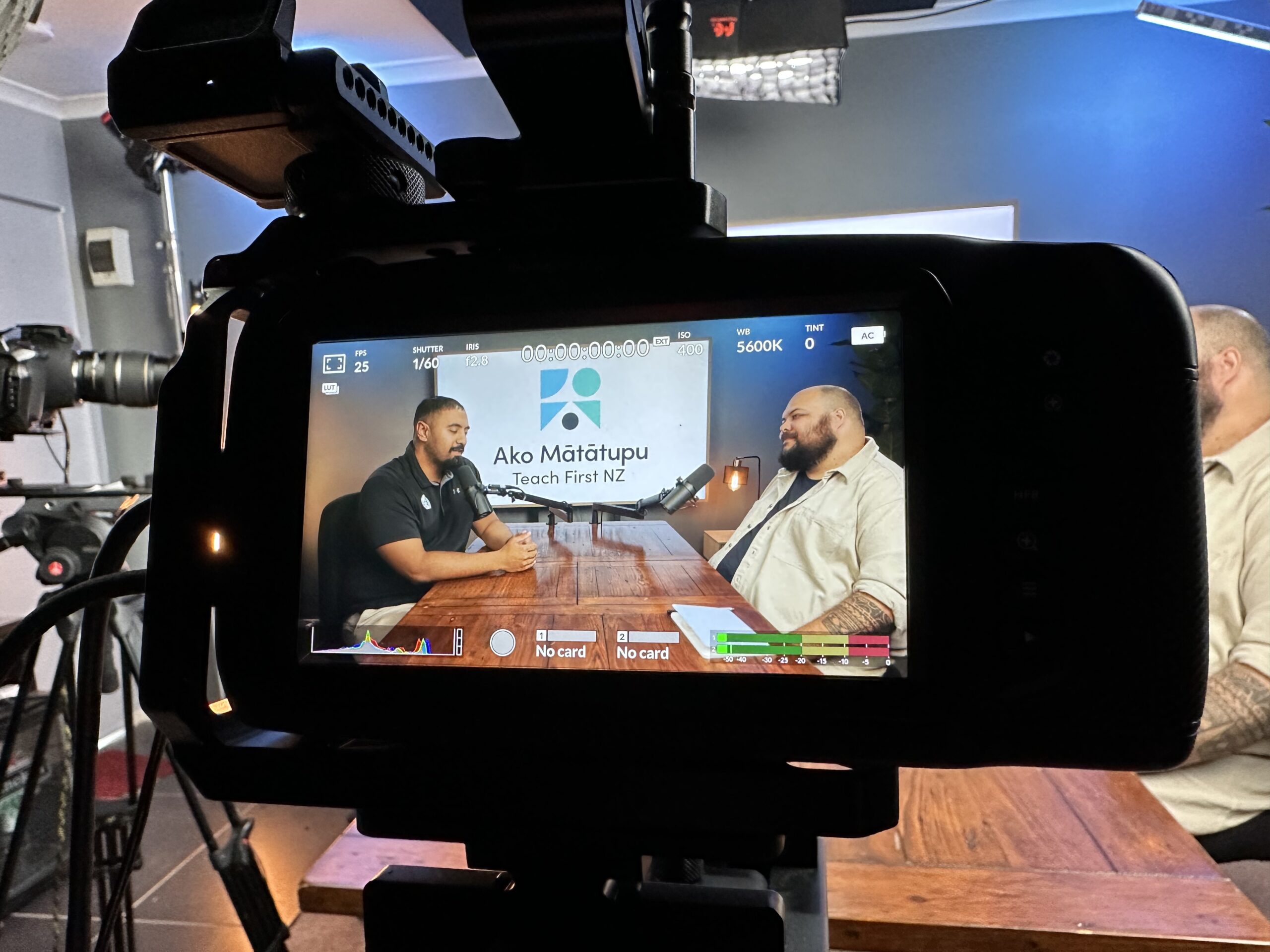Working as an unqualified teacher can be a great way to be of service to students during a school’s time of need. However, training to become a fully-qualified teacher is important for your development and career journey. Gaining qualified teacher status will meaningfully grow your ability to be an adaptive curricular and pastoral expert for the young people in your care. Read more about the process of becoming qualified, and the scholarship-funded pathway available with Ako Mātātupu:
Teacher education and qualification landscape in NZ:
Secondary school teaching in Aotearoa is underpinned by high expertise and high trust. Both strong disciplinary content knowledge and strong pedagogical teaching and learning approaches are important in supporting young people to unlock their potential. Both of these bodies of knowledge and skills are developed before and on the job, in a cycle of continuous inquiry and development. Teaching is a proud and ethical profession, with accountability to tauira, whānau and the broader public. The body that oversees the rigorous registration and certification process is the Teaching Council of Aotearoa New Zealand. Holding a practising certificate from the Teaching Council allows a teacher to show the public, learners and fellow kaiako that they are safe and competent to educate rangatahi.
In order to become a registered and certificated secondary school teacher in Aotearoa New Zealand, the most common pathway is to undertake at least an undergraduate-level subject-specialist degree, before embarking upon a graduate or postgraduate-level Initial Teacher Education (ITE) qualification. For example, a student graduating with a Bachelor of Science majoring In physics and chemistry may gain entry to an ITE qualification to train to teach these science subjects at secondary school level. Prerequisite exceptions do occur, such as the process of formal Recognition of Prior Learning (RPL), for knowledge gained in a related discipline, or in the field. Some ITE programmes occur prior to formal employment in a school, while others take place on the job, apprenticeship-style. All ITE qualification training pathways go through a quality approval process and are given the seal of approval by NZQA.
What is the demand for teachers?
Regardless of the unique impacts of social events, immigration and labour patterns, or global and local trends, high-quality and culturally sustaining teaching is always in demand. Schools and students need more great people to answer the call to serve the next generation, equipping students with both the life skills and the critical consciousness to activate their own collective leadership and meet the challenges of our times. In a world that often disenfranchises young people, schools are important sites to nurture youth voices, culture and potential. Schools can set tauira up for a life of civic engagement and investment in shared social, economic, and cultural life. Having a truly caring teacher with excellent subject skills and knowledge, and a passion for youth development and community service, are absolute cornerstones of a rich and nourishing education experience for young people.
What role do unqualified teachers play?
In some circumstances, schools may employ people without a full formal teaching qualification when there is a need for specialist skills, or where skills are in short supply. In these circumstances, a temporary Limited Authority to Teach (LAT) is granted by the Teaching Council, with the endorsement of a school leader, tumuaki or principal. A specialist skill is one not widely available among registered teachers. One example of such a skill is the colonially-marginalised taonga of te reo Māori. A skills shortage may also apply in a remote geographic area, or during times of social upheaval or difficulty. The ongoing effects of the global pandemic may very well be one of those circumstances contributing to a current skills shortage, with many school leaders citing staffing difficulties as Aotearoa contends with community spread of SARS-CoV-2.
Why shift from unqualified to qualified teacher status?
Unqualified teachers learn a lot on the job, and can make wonderful contributions to their school community and the young people in their temporary care. They are paid on the untrained teacher salary scale. At the time of publication (October 2022), untrained teachers earn between $43,381 and $77,584. With untrained teaching positions, what often starts as short or mid-term service in a skills shortage scenario may become a longer-term vocation or calling. Many unqualified teachers take the awesome step to becoming fully qualified, so that they can continue on in their teaching career.
Becoming qualified brings more skills and expertise as a teacher, which benefits young people and brings entry to the registered teaching profession. Getting qualified ensures the right to be paid on the trained teacher salary scale, with fair access to permanent employment contracts – ensuring stability and access to longer-term benefits such as collegial collaborations and sabattical periods. Trained teachers currently earn between $52,000 and $80,000 on the base scale. Being fully qualified also brings the potential to progress to curricular, pastoral, or school-wide leadership positions, which come with extra salary units.
Why getting qualified matters:
No matter the training pathway, it is important for secondary teachers to be able to hold knowledge in a key learning area that maps onto the New Zealand Curriculum. This need for background specialisation signals the high calibre expected of teachers to be able to serve the learning needs of our nation’s diverse and treasured adolescents. Teachers generally lead learning with tauira across year levels 9-13 in a kura or school setting, specialising in at least one subject. Individual teachers belong to curriculum area teams or departments, in which kaiako share best practice, support each other in developing rigorous and student-centred approaches to teaching and assessment for learning, and prioritise pastoral support for the hauora and wellbeing of rangatahi. Getting fully qualified as a teacher through an ITE pathway allows you to engage fully in the inquiry cycle, and become an adaptive expert as a leader of learning.

Ako Mātātapu and the Teach First NZ programme:
At Ako Mātātupu we support brilliant people to advance their training and become fully-qualified teachers. We are proud to awhi and support people on their intellectual and pragmatic journey from untrained teacher status through to full qualification, via our innovative The Teach First NZ programme. The Teach First NZ Programme is an employment-based and scholarship-funded Postgraduate Diploma in Secondary Teaching. The programme sees our rigorously-selected participants undertake a two-year course of study and training, whilst serving students in a school community serving a lower socioeconomic community.
Some of our participants are new to secondary teaching (though very often bring with them experience in community work, lecturing, childcare, or other relevant career experiences). We also have participants who enter our programme as untrained teachers currently serving schools in an area of need, on an LAT. With the support of Ako Mātātupu you are able to take the next step to become fully-qualified teachers. It is a joy and a privilege for us to see talented people take their initial skills and service and become fully qualified, opening up a world of career progression and further service to the flourishing of young people.
Equity and social justice in teacher education:
Ako Mātātupu training is important for quality teaching and learning outcomes for historically marginalised young people, with a focus on culturally-sustaining pedagogies. The Teach First NZ programme is also important in terms of equity for those of us who ourselves have been underserved by formal education, or who ourselves come from unfairly marginalised communities. The ability to either start or continue serving a valued school community on the Teach First NZ Programme, without having to take time out of the workforce, means that people with caregiving or other cost-of-living commitments do not have to forgo vital income on their path to full qualification.
The Teach First NZ Programme is in no way a fast-track scheme. Participants start with an initial Summer Intensive: seven weeks of full-time preparatory study towards the first two papers on the funded Postgraduate Diploma in Secondary Teaching. These first papers weave together understanding the context and history of education in Aoteoroa, as well as adding vital pedagogical tools to your teaching kete. Participants then enter or resume their employment positions in schools at the start of the academic year, earning a fulltime salary at their relevant position on the publicly-set untrained teacher salary scale.
A reduced teaching load gives our participant kaiako the breathing room to develop their professional practice and engage meaningfully with coursework assessments. Specialist in-school support is provided in the form of an experienced mentor teacher, and Ako Mātātupu also provides one-on-one support from a Kaihāpai (Teacher Educator). Whole-cohort learning is continued throughout the two year training period with the support of Kaiako Maurau (curriculum subject specialists), as well as a schedule of group Wānanga weekends and periodic experiential learning retreats.
Getting qualified with Ako Mātātupu:
Ako Mātātupu teachers on the Teach First NZ Programme complete their two years of training with deep respect and embedded application of the Code of Professional Responsibility of the profession. Successful completion of the programme equips you with a nationally-recognised teaching qualification, and the ability to enter the formal certification process. Upon graduation, our participants move from the untrained teacher salary scale to the trained teacher salary scale. As well as formal qualification, our participants also advance their ability to teach for social justice, make life-long bonds with their cohort peers, and remain deeply committed to the work of serving public education and wider social transformation.
To find out more about our training pathway to a full teaching qualification, check out our flagship programme. Applications are open to join Cohort 2024, with training kicking off in mid-November 2023. Kia manawanui!




